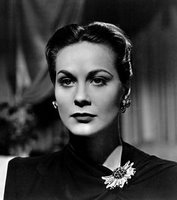 Momentous. First-rate. Superbly precise. Unflinching. Inspiring. Masterful and heartbreaking. May be the most wrenching, profound and perfectly made movie nobody wants to see.
Momentous. First-rate. Superbly precise. Unflinching. Inspiring. Masterful and heartbreaking. May be the most wrenching, profound and perfectly made movie nobody wants to see.And from Shawn Levy of The Portland Oregonian: I am here to tell you that Greengrass has fashioned one of the most powerful films I have ever seen, and that watching it makes you value your loved ones and your privileges more, perhaps, than you ever have. He has made a film that makes you feel, makes you think and makes you want to connect. And that, finally, might be the greatest thing that art can do.
First I wanted to see United 93, then I didn't. But now, given the universal acclaim unleashed today in papers around the country, how can I not? Compelled, I'm going to the 7:50 show.
Updated 23:19.
Back from the movie. Thoughts:
+ Theater (in southern Maryland suburb) was half full. Attendees were diverse in age, race and social mode (groups, couples, and I counted three other solo attendees like myself). I'm not sure how I expected people to behave, but I definitely didn't think they'd haul in tubs of popcorn, which many did.
+ The American flag does not make an appearance. There's no mournful/hopeful, flapping star-spangled banner at the beginning or end. This is a movie about an event, not its contemplative and patriotic aftermath. The film does not use hindsight to assign blame, take sides or place any kind of critical lens over the situation. It is only about how confusion and shock move toward a shattering clarity. There is no rhetoric. It is, dare I say, a refreshing and purifying treatment of 9/11.
+ The music score, by John Powell, is pitch perfect and used sparingly and brilliantly (especially at the end).
+ The movie is as much about the air traffic controllers as the passengers. I'd venture to say the controllers have more screentime. Stick through the credits, and you'll see that many of the actual controllers were playing themselves. It must've been terribly humbling to re-live that morning's profound confusion and miscommunication.
+ Of all the glowing reviews, I think Ann Hornaday at The Washington Post comes closest to articulating the urge to make and see a film like this: "There are some filmgoers who will see 'United 93' out of morbid voyeurism, some looking for meaning and catharsis, others simply to bear witness to sacrifice. (On this level, 'United 93' could well become a secular phenomenon on par with 'The Passion of the Christ.')" She hits all the other necessary nails on the head.
+ The cast is extraordinary. No backstory is provided for the characters. There is no indulgence in subplot. The actors don't have a chance to emote. They must simply act -- act oblivious, act terrified, act panicked and then blindly resolute -- and internalize everything else. How they interact is Greengrass' superb accomplishment. There is no engineered drama, no "let's roll" moment. In fact, when "let's roll" comes around, you barely notice it. Their action -- at that place and time -- is a function of urgency and common sense, not heroics.
+ Ebert, as usual, is exactly right: "It is not too soon for 'United 93,' because it is not a film that knows any time has passed since 9/11."
+ Because the characters are treated in such an anonymous and even-handed way, it was frighteningly easy to imagine one of my relatives on board, a victim of chance and circumstance. That's when the film really hits home.
+ I had one realization toward the end -- a realization I should've had by now. My mother and aunt were in D.C. on 9/11 for my birthday, staying on Pennsylvania Avenue, perhaps three quarters of a mile from the Capitol. It is accepted as fact that United 93 was bound for a D.C. target (the film assumes it was, in fact, the Capitol). Who knows what would've happened if the plane made it to the city. It could've hit its target, or it could've approached awkwardly and veered, hitting any number of random places. It seems fair to say that anyone who was in D.C. or the surrounding area, regardless of what actually happened on United 93, was saved by its passengers.
+ My physical reactions? The requisite heart-pounding and minimal tearage. But here's something I've never experienced during a movie: For the film's second half, I could not stop my legs from shaking.
+ After the series of explanatory title cards at the film's end, the audience applauded.
.jpg)







 Things have been synchronous lately. Latest example: I've been marinating in all things
Things have been synchronous lately. Latest example: I've been marinating in all things 
 Happy birthday,
Happy birthday, 










